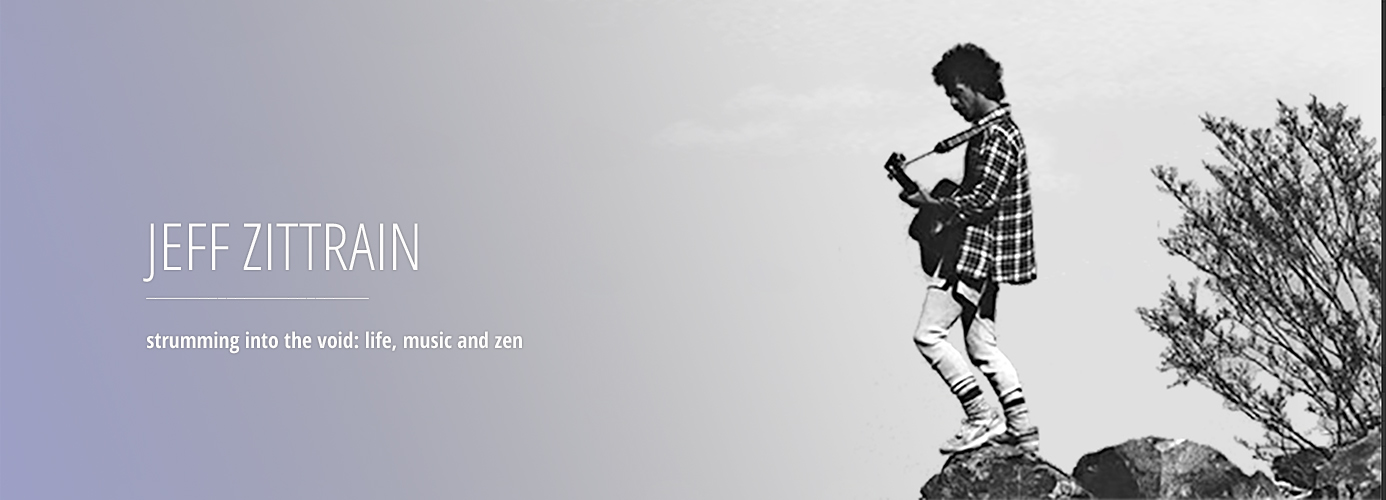
I’d like to throw in my kynd couple of cents on Neil Young’s “Living with War” cd. But I’m going to take the scenic route through Live Aid and Woodstock and Amnesty International’s Secret Policemen’s Ball.
And we’ll wind up in the present. We can start it all with Neil’s sometime partner-in-rhyme Graham Nash.
Beginning in the 1960’s rock and roll embraced the big statement. “We can change the world, rearrange the world” sang Graham Nash in 1971 with all earnestness. The 2004 “Live Aid” DVD set proclaims that 1985 concert as “The day the music changed the world.” And in any year, the world certainly seems to change during a psychedelic experience.
Those of us turned on to the power of the jam are drawn to its transformative power. I think this is why people fall in love with rock and roll during adolescence, since it coincides with and inspires their own personal transformation. This is why rock achieved mythic status in the turbulence of the sixties, providing a soundtrack to the boomer generation “growing up” along with a society in transition. You can see it all in the transformation of the Beatles from 1964 mop-tops on Ed Sullivan to the bearded elder statesmen of 1969’s “Let it Be” and “Abbey Road.”
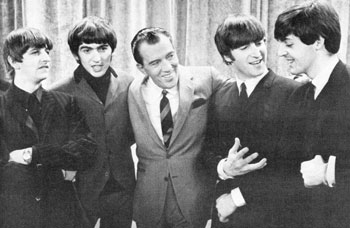
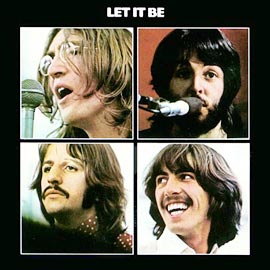
In many ways rock has been living in the shadow of the sixties and the reign of the Beatles ever since, trying to hold on to its purpose. As late as 1985, Joan Baez declared to the throngs at “Live Aid”: “This is your Woodstock – and it’s long overdue!” (And Mike Myers would pay an even greater homage with 1993’s “Waynestock” festival…)
I remember watching Live Aid live on TV and I recently plunked down the bucks for the 4-dvd set to revisit the experience. Unlike Woodstock, which presented bands at their peak or even the beginning of their careers (David Crosby of Crosby, Stills and Nash famously informs the crowd that “this is our second gig”), Live Aid was the rock and roll community looking back, most of the then-current bands having storied histories and some (The Who, Led Zeppelin, Black Sabbath) reuniting for the occasion. It became a retrospective of what rock music had been up to the past decade or so.
Part of what rock had been up to was fighting itself, struggling with its hippie roots. Remember that Live Aid mastermind Bob Geldof came from the anti-hippie world of the punks. The liner notes to the “Secret Policeman’s Concert” cd (from the 1980 -81 Amnesty International benefit shows which inspired Geldof) explain that he was only asked to perform at those shows to appease director Julien Temple, who, fresh off his Sex Pistols movie “The Great Rock and Roll Swindle,” didn’t want proto-hippie Donovan there, even if he could put up with the old guard of Pete Townshend, Eric Clapton, and Jeff Beck, along with newer acts Sting, Phil Collins, and, to appease him, Bob Geldof.
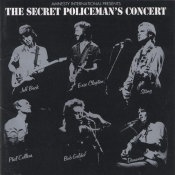
But the punks were coming to terms with rock’s hippie past. Geldof starred in “Pink Floyd The Wall” in 1982 and I saw Exene Cervenka of X remarking from the stage of the Fillmore in the early 90’s: “You know, I used to make fun of all the hippie stuff, but standing here, I realize they had a lot of cool things to say” – or words to that effect…
Live Aid also tips its hat to the hippies, with punk pioneer Elvis Costello performing the Beatles’ classic hippie anthem “All You Need is Love.” (So much water has flowed under the bridge that it helps to recall Elvis’ original anti-hippie image. He was so spastic on “Saturday Night Live” in 1977 that I remember my mom being heart-warmed that someone with his disabilities was trying so hard). Of course, Elvis had memorably grappled with the punk response to the hippies in his great 1979 cover of “What’s So Funny ‘Bout Peace Love and Understanding” and was even, as he finally revealed in the late 80’s, a former Deadhead.
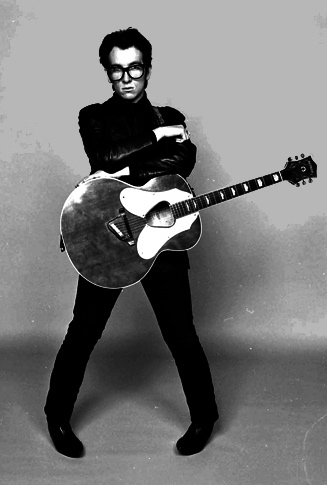
The Beatles, like I said, were certainly casting their shadow all over Live Aid, not just with Elvis, but with Patti LaBelle mangling “Imagine,” and Paul McCartney closing the London concert with “Let it Be.”
Watching the DVD brings to mind thoughts both profound and silly. There are minor epiphanies, like the bizarre similarities I never realized before between the Style Council and Spandau Ballet (although the Style Council rocked harder). Lots of bands – even cool ones like the Pretenders and Dire Straits – wore these weird, long, garishly-colored coats and mullets abounded. On the profound side, David Bowie delivered the showstopper performance with “Heroes,” in which that song’s tragic/heroic tale of young love morphed into a triumph of the youthful spirit as adult action. It crystallized the ideal of the concert, as if rock was finally fulfilling its promise for a better world. We could be proud of the litany of bands parading across the London and Philadelphia stages that day – our heroism had grown up, and was using its personal triumph to reach out to the world. Rock’s Romeo-and-Juliet all-or-nothing idealism was actualized. But not seeming trite or naïve, like “We Are the World.” Because Bowie’s heroes are not everlasting – it’s “just for one day.” And existentially speaking, that’s all you get, anyway. But if it rocks, that’s all you need.
“Heroes” was originally inspired by the Berlin Wall – and the omnipresent Beatles exert their influence here as well: on the 2003 “Paul McCartney in Red Square” DVD, a Russian musician declares that the Beatles helped bring down communism because they “gave an alternative to a belief system the young people didn’t believe in.”
This sounds to me like what rock and roll at its best always does – in the USA or back in the U.S.S.R. – here, there, and everywhere… providing an alternative belief system. The Grateful Dead was the epitome of this, existing outside of the mainstream rock counterculture with no hits and almost no airplay (until 1987’s “In the Dark”), yet creating a self-contained world that emanated from the band on stage out to the immediate audience and spilling over to the parking lot and then radiating out onto the unsuspecting world-at-large.
Somehow, the inner transformation and outer effects in the real world need to find a balance to infuse each other. This is, of course, the principle of “Right Action.”
This yin-yang was reflected in the sixties in the dichotomy in the Bay Area between psychedelic San Francisco and political Berkeley. Woodstock seemed to be about a lot of inner transformation, but there wasn’t a particular end that the energy was being directed towards (other than “no rain” at one point…). And while Live Aid had a particular and important real world focus, there wasn’t much profound inner change happening. Thunderous applause for Madonna, George Michael, and Phil Collins – were any of them really doing much more than crooning?
Along these lines, it’s perhaps telling that the biggest of the big names at Live Aid – the profound elder statesmen pioneers – almost all had weird technical and performance glitches. The Who gets lost in the middle of “Won’t Get Fooled Again” and Pete Townshend falls over trying to leg kick his mic. Paul McCartney’s mic is turned off so no one hears the first few verses of “Let it Be”. Bob Dylan breaks a string on “Blowin’ in the Wind” while Keith Richardsand Ron Wood spend most of that song trying to tune their guitars. Led Zeppelin was reportedly so embarrassed by their performance that they refused to let it be released on the DVD. (I therefore couldn’t watch their set, but from what I recall from watching it live – Jimmy Page tipping over holding a bottle of Jack Daniels in their post-gig interview – they might have had a point). The music is inspiring in context, but aside from Bowie and Queen (and to a lesser extent Dire Straits – the one band that manages to actually pull off an improvised jam – and I know some would argue U2 but, Nobel nominations aside, Bono loses many points for the mullet) there’s nothing like the inspired Woodstock performances of Santana’s “Soul Sacrifice,” the Who’s “Tommy” finale, Sly and the Family Stone’s “I Want to Take You Higher,” Ten Years After’s “I’m Going Home” or Hendrix’s “Star Spangled Banner.”

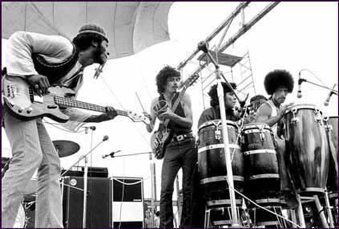
Still, I have to give Live Aid credit for putting principle into action. And the DVD proceeds benefit the Band Aid Trust for African Famine Relief. Mullet-jokes aside, Bono has really walked the walk of U2’s social awareness as he flys around the world meeting with heads of state. Just today I saw Warren Buffet tell Charlie Rose that he personally called Bono to tell him he was donating most of his billions to the Bill and Melinda Gates Foundation.
It makes me wonder about Neil Young’s “Living With War” cd, released just a few months ago. Neil turned in a nice performance back at Live Aid and “Living With War” has a cool feel to it – the trumpet is both triumphant and wistful, the choir really brings out the melodies and creates a cushion for his distorted guitar, and maybe there’s something to be said for sing-along anthems that have people humming “I’m living with war everyday” and “Let’s impeach the President” in the shower. But is that enough? I recall Thoreau bemoaning the lack of real action on the part of self-satisfied opponents to slavery in “Civil Disobedience”:
“How can a man be satisfied to entertain an opinion merely, and enjoy IT? Is there any enjoyment in it, if his opinion is that he is aggrieved? If you are cheated out of a single dollar by your neighbor, you do not rest satisfied with knowing that you are cheated, or with saying that you are cheated, or even with petitioning him to pay you your due; but you take effectual steps at once to obtain the full amount, and see that you are never cheated again.”

What “effectual steps” is Neil’s cd taking? Sure, it’s a brave statement and I’m glad it was made. But other than people arguing over his right to protest, I don’t know that it made much of a dent in the cultural dialogue in terms of changing anyone’s mind or rallying the anti-war troops the way “Fahrenheit 9/11” did. Much was made of his allowing the entire cd to be streamed for free before it was released for sale. But this worked as pretty good publicity. And after it was released, I googled everything I could think of trying to find where the proceeds were going – a veterans’ group I assumed, or anti-war organization like “Not in Our Name.” But I couldn’t find anything, other than someone accusing him of “war profiteering.” I won’t go to that extreme, but I remember asking a fellow musician selling anti-war t-shirts at a rally against the Iraq War back in 2003 where the money was going and she had no problem saying it was all into her own pocket. Hey, hey, my, my – that’s how rock and roll will die. The Great Rock and Roll Swindle, indeed. We got fooled again.
Shortly after 9/11, Famous Last Words played at a benefit for the victims and covered Dylan’s “Chimes of Freedom,” the antecedent to Neil’s “Flags of Freedom.” I’d been playing that song myself for years but at that show I could actually feel each line unfolding new meanings as I sang them, living anew in the aftermath of the tragedy. With all of the loaded rhetoric about “freedom” and “America” being bandied about those days, this song seemed to really capture the true spirit of the beautiful American dream – inner personal freedom and compassion for same – translated into action:
“Flashing for the warriors whose strength is not to fight,
Flashing for the refugees on the unarmed road of flight,
And for each and every underdog soldier in the night,
We gazed upon the chimes of freedom flashing”
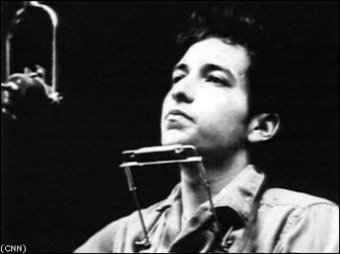
Amnesty International opened their 1989 stadium concerts with this song, which really emphasized its politics. But it’s focus is not just political oppression, not just America and not just the world, but, as the last verse makes clear, freedom “for every hung-up person in the whole wide universe.”
Like I said, not afraid to make the big statement. Even if you break a string in doing so. Educate the people. Teach your children well. Teach your parents. Girls, rock the boys. And vice-versa. Feel the noise, what’s that sound, everybody look what’s going down. And funnel some funds into the cause. After all, how can you run when you know?
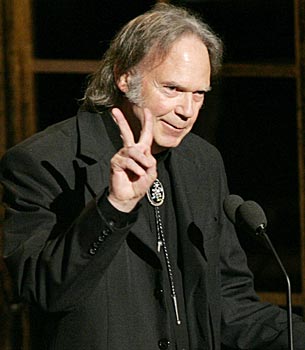
7 RESPONSES TO “ HOW CAN YOU RUN WHEN YOU KNOW? ”
- # 1 Jeff Says: July 3rd, 2006 at 1:04 pm
- Nothing to see, folks, move along…Just testing since someone told me it didn’t work when they tried to leave a comment…
- # 2 Sal Says: July 4th, 2006 at 12:39 am
- no problem posting here. Brilliant column, one of my favorites I think. It’s interesting how you bring it all back around to the great rock and roll swindle. When Baez said this was “our” Woodstock, she couldn’t have been more wrong. Why? Woodstock was an accidental spontaneous occurrence, that was it’s magic. In today’s 24/7 infotainment “culture” that will never happen again. We are too spoonfed to be spontaneous.
- But I guess that’s the appeal of the jam, because it is pure and in the moment, right?
- # 3 Carrie Says: July 4th, 2006 at 12:53 am
- Bono has def. walked the walk and his performance of Sunday Bloody Sunday at Live Aid gives me goosebumps. Mullet or no, they made it a meaningful event.
- And a lot of bands today are putting their hearts, mouth, money, tour busses and more where their heart it is.
- Caught your Banish song on the Wilderness disc. I guess you guys are one of those bands. Peace, Love and (Julia) Butterflies!
- # 4 Brendan Says: July 4th, 2006 at 12:59 am
- Sal sent me over…interesting stuff. Of course Neil, Moore and their counterparts never make a dent in the cultural dialogue. That’s because that they are not only preaching to the choir but there is no real cultural dialogue in any way that matters.
- Divided we fall and are falling, but maybe that’s best for the long term health of the world as a whole.
- # 5 LiquiDiet Says: July 4th, 2006 at 1:04 am
- Jesus, you guys are downers. Totally righteous Beatles references, winks, nods….truly here, there and everywhere!
- Happy 4th All. Go Buy a new Chevy! Haha!
- # 6 Jeff Says: July 4th, 2006 at 3:49 pm
- Thanks for all of the very cool comments – I guess KyndMusic is where the real cultural dialogue is taking place…
- For the record, I think Michael Moore is not as didactic as his cartoonish reputation. I thought “Fahrenheit 9/11″ was not just preaching to the choir but aimed at middle America and from a lot of stuff I read back then it seemed like it was both rallying the anti-war troops and changing other people’s minds. Not enough, though, apparently…
- Thanks also for the props on FLW’s “Banish.” That song was written as an uptempo anthem but after the election I could only play it as a dirge which is how we recorded it for “Voices in the Wilderness.” We’ve recorded a fast version now for our new cd – hopefully I won’t have to turn it into a dirge again…More reason to get our new cd done, to capture a period of optimism before everything falls apart – pure and in the moment – Happy July 4th – declare your independence!
- # 7 Dave Terpeny Says: July 5th, 2006 at 11:00 pm
- Yay dialogue! And regarding Banish, wait till y’all hear it on the new FLW album. Its gonna be sweet.
- As for everything else, great column but you’re right Sal, it’s all been done before, hasn’t it?
